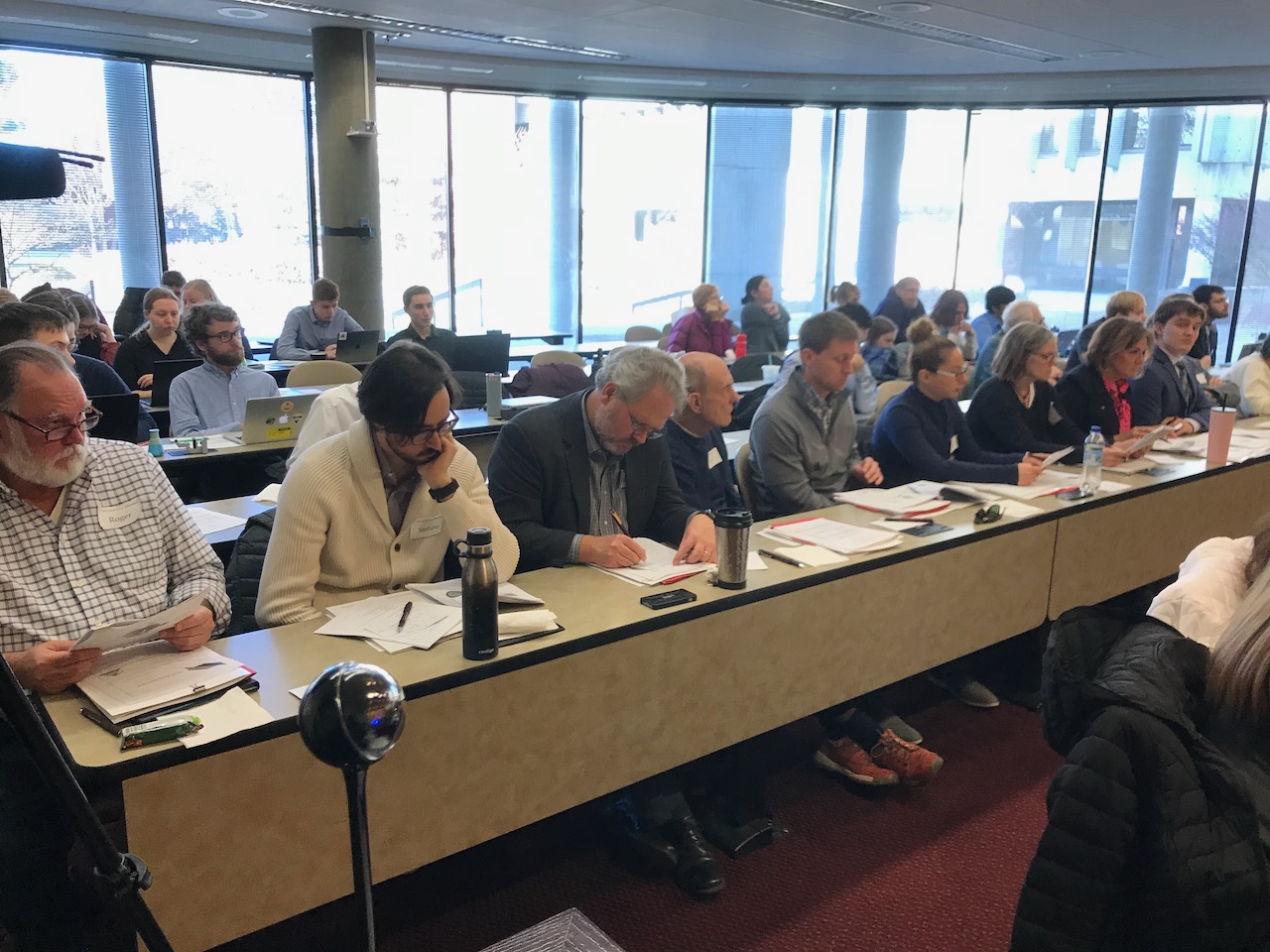The 2022 Science Court trial on whether the current grading system at the U should be refined or reformed will take place on Saturday, April 23. If you’re new to the Science Court system, you may be wondering what does the trial involve? Is it like a normal jury trial? How long does it last? Here’s what jurors – and any general public who chooses to attend – can expect from a Science Court trial.
We’ll start at 9AM with a brief background on the principles behind Science Court and the introduction to the case from Professor Ellad Tadmor. We’ll then hold a series of sessions, where the science team will present information about specific topics pertaining to the case, before being questioned by the legal team. The two legal teams will hold a rebuttal session before we open up for jury questions. Finally, we’ll hold closing arguments, the jury will deliberate and announce the verdict the next day.

The 2019 Jury
The Trial will Begin with an Overview of Science Court and the Case
Course instructor Professor Tadmor will share his story on why he created Science Court and what it has accomplished over the past few years. He’ll then share a bit about this year’s case, highlighting some of the University of Minnesota policy changes over the past few semesters that have brought the efficacy of grading into question.
We’ll also discuss some of the key scientific domains and stakeholders that the class identified at the start of the semester. The audience and jury will then watch an introductory video made by the media team that highlights what the science and legal teams will discuss later on.
Arguments Will be Presented in a Series of Sessions
After the introduction to the case, the judge will welcome both legal teams to present their opening arguments about the case. The trial will then proceed with a series of sessions, each being focused on a particular scientific area relevant to the case. For example, session topics this year could include concerns about student mental health with grading.
Each session will begin with a science team member acting like an expert witness, answering questions from the two legal teams based on their research. At the end, the legal teams will give a “rebuttal,” where they summarize why the testimony supports their ideas.
There will be 10 to 12 sessions, and at the end of the trial, the jury will submit an answer about their thoughts on the legal team arguments via a special verdict form.
The Jury Determines the Outcome of the Case
After students go through the sessions, jury members will be invited to ask any questions to members of the science team. However, these will be transferred to the teams at the discretion of the judge; moderators can remove or consolidate questions. If the science team cannot initially answer the question, they are given time to review their research to provide an accurate response later in the day.
After all questions are addressed and answered, the legal teams will give their closing arguments. Finally, the jury will then meet the next day to decide on a verdict.
Stay tuned to hear what happens or feel free to attend the event or participate in the jury!